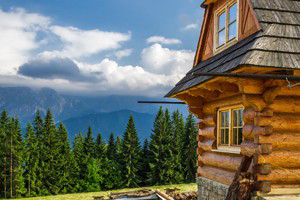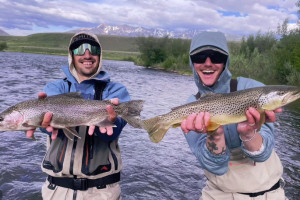- Grand Teton National Park is open year-round. However, the inner park road and most facilities are closed during the winter months.
- One of the smaller National Parks, Grand Teton boasts one of the largest numbers of visitors.
- Activities include hiking, camping, rock climbing, fishing, canoeing, cross country skiing, snowshoeing, and wildlife viewing.
Overview
Visitors to Grand Teton National Park are awe struck by the dramatic landscape of mountains that rise over 7,000 feet directly from the valley floor. The lack of foothills makes the rise of these spectacular mountains impressive and like no other place on earth.
One of the smaller National Parks, Grand Teton boasts one of the largest visitor numbers. The landscape not only gives rise to mountains, but the area has sagebrush valley floors and dense forests as well. Spring brings out the array of wildflowers which carpets the area in vibrant colors, but the winter can be harsh and cold with winds, snowstorms and below zero temperatures.
Hours/Seasons
Grand Teton National Park is open year-round. However, the inner park road and most facilities are closed during the winter months. The Craig Thomas Discovery and Visitor Center in Moose, Wyoming (at the south entrance) remains open year-round.
Fees/Costs
- Single entry: $25.00 - 7 Days
Good for both Grand Teton and Yellowstone national parks: $25.00 per vehicle; $12.00 per person for single hiker or bicyclist; $20.00 per motorcycle. - Winter Day Use: $5.00 - Day
Available from mid-December through April 30. Valid for Grand Teton National Park only. - Annual Pass: $50
Contact
Grand Teton National Park
P.O. Drawer 170
Moose, WY 83012-0170
(307) 739-3300
Highlights
Within its many canyons and around its numerous lakes, Grand Teton Nation Park offers spectacular hiking, camping, rock climbing, fishing, canoeing, cross country skiing, snowshoeing, and wildlife viewing.
Peaks, canyons, lakes, rivers, cascades, aspens, and wildlife galore take up the entire western horizon as you travel along the main roadway. Seven glacial lakes sit at the base of the Tetons including Jenny, Leigh, Taggart, Bradley, String, Jackson, and Phelps.
Despite its breathtaking views from outside of Grand Teton National Park, there is much to be desired hidden on trails, high above tree line, and deep in the park where canyons begin. Elk, deer, marmots, black bears, grizzlies, porcupines, and moose are just some of the wildlife to be seen on its trails.
The park provides trails for all ages and abilities. Go for a quick and easy hike to Bradley and Taggart Lakes, or take a few days to hike the Teton Crest trail that crosses the entire range. Take some photos or paint a picture. Whatever you do, it is worth taking the time to explore.
Getting Here
The shortest, most direct route between Big Sky, MT and Grand Teton National Park takes you through Yellowstone National Park. However, this roadway is closed in the winter. To travel between the two destinations in the winter, you will need to travel to Idaho Falls, ID and then east through Jackson, WY and finally to the Park.
Regardless of the route, the view all along the way is spectacular. You’ll want to take your time as you travel in order to enjoy the ride.







